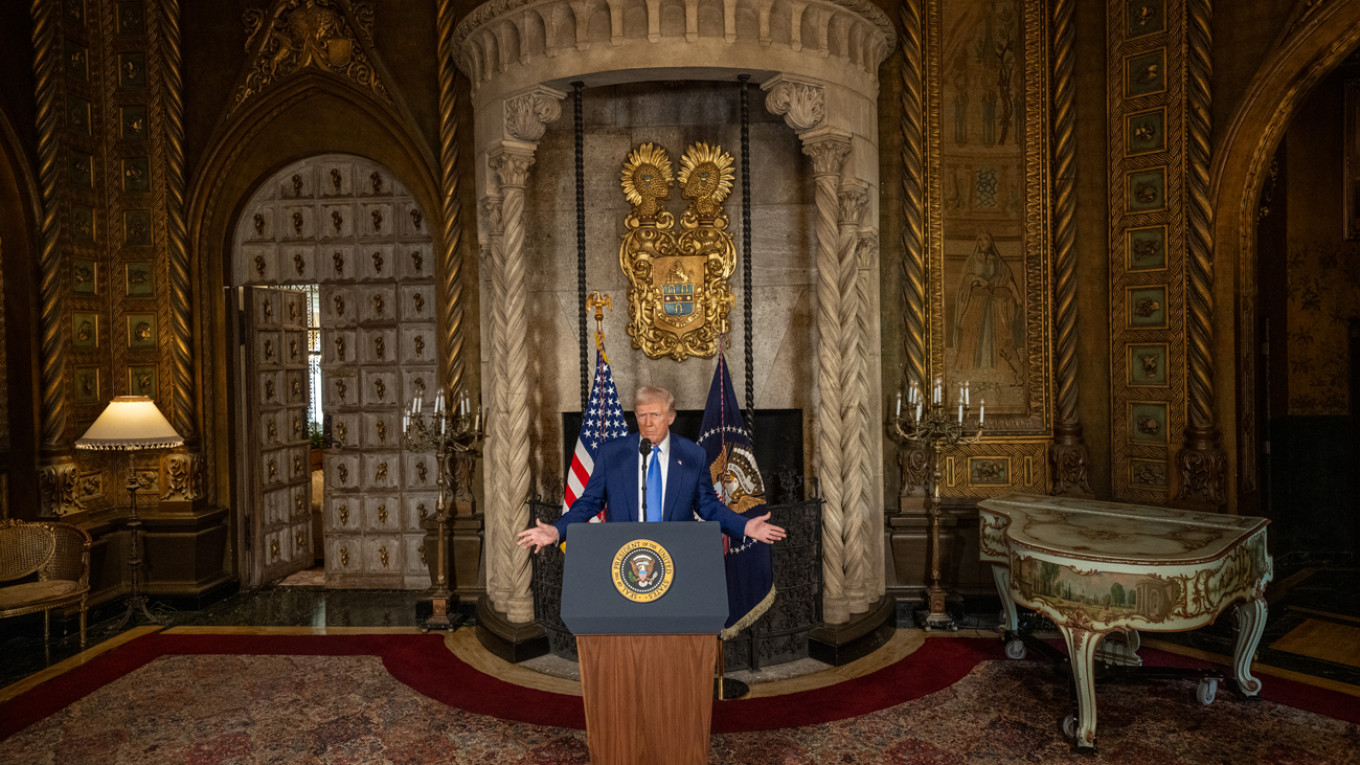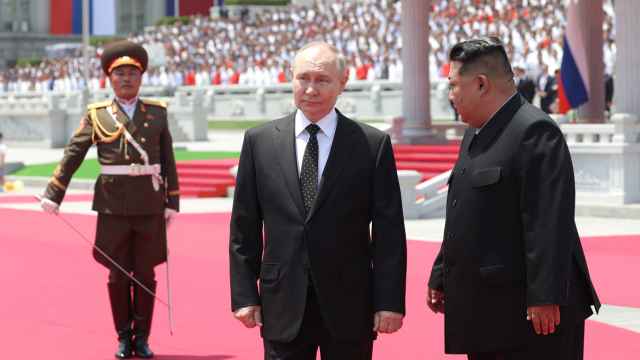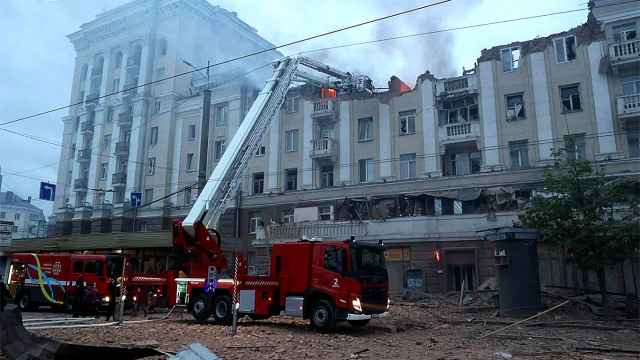This has been the week when everything changed.
From U.S. Defense Secretary Hegseth’s comments about NATO and Ukraine, through Vice President J.D. Vance’s explosive speech to the Munich Security Conference, to Tuesday’s U.S.-Russia talks and President Donald Trump’s press conference, the new U.S. administration has signaled the most dramatic reorientation of American foreign policy since the Second World War.
Trump’s desire to disengage from NATO and develop good relations with the Kremlin was obvious during his first presidency. But he was unable to do either. In his second term, he is surrounded by individuals who share these views — most importantly, Elon Musk — and by others, such as Secretary of State Marco Rubio, who have been willing to pivot away from their previous views on the need to oppose Russia and support Ukraine.
The Trump administration has made it clear that they see the NATO alliance as a burden, not a strength, that values no longer connect the U.S. and Europe, and that, in any case, values are less important than hard power.
Their approach to Ukraine has been even more stark. Although the details of a Trump “deal” on Ukraine are still unclear, the administration has cut Ukraine out of talks about the war, seemingly expected Ukraine to sacrifice territory, give up its NATO aspirations, and tried to force Kyiv to pay hundreds of millions of dollars in rare earth mineral rights in exchange for previous aid and the vague suggestion of some type of security assistance in the future. In shameful comments after the U.S.-Russia meeting on Tuesday, Trump appeared to blame Ukraine for the war inflicted on it.
In contrast, the White House appears not to require any concessions from Moscow. Instead, they are keen to normalize relations to develop “economic and investment opportunities” and to see Russia accepted back into the G7/G8. The scrapping of some or all sanctions seems likely. The Trump administration increasingly looks as if it is aligning itself with Russia — against Ukraine and perhaps even against the rest of the West.
This unprecedented change in Washington’s view of the world — and of the U.S.’s role in it — is transforming Europe and the global balance of power.
In Europe, the post-Cold War security architecture is eroding rapidly. Although NATO may continue to exist as a structure, it is hard to see how it survives as a meaningful alliance given White House hostility towards Europe and Canada’s principles and priorities. In some cases, this contempt even extends to their sovereignty.
Whether or not the Trump administration withdraws troops from NATO’s Eastern flank, it is no longer safe for other NATO members to treat the U.S. as an ally or a trustworthy intelligence partner, let alone a security guarantor. Washington’s former allies are being diplomatic, and some of them may still cling to the hope that things will eventually return to normal.
But some European states are beginning to face up to a future in which they are responsible for their security alone. They will have to ask hard questions about how Europe defends itself in the absence of a credible U.S. nuclear umbrella. More difficult still, they will need to think about whether the United States may itself become a threat and how they can respond to it. All of this will be complicated by the presence of pro-Russian governments inside NATO and the impact of Russian interference.
But the shift in Washington’s foreign policy goes even further than the abandonment of allies and the alignment with an adversary. For over a century, U.S. engagement with the rest of the world has been driven — at least in theory — by its values. The U.S. has thought of itself, in Ronald Reagan’s words, as the “shining city on the hill,” changing the world by example and providing support for democracy in other states.
The Trump administration has abandoned this American exceptionalism, the idea (however divorced from reality) that defined the country’s place in the world. The White House is staking the U.S.’s global position — and thus its security and prosperity — on the bet that values, alliances, soft power and trustworthiness are unimportant.
That is a risky move in a world where other powerful states will see Washington’s detachment from its allies, abandonment of Ukraine and adoption of pro-Kremlin policies as signs of weakness. Despite this re-alignment, Russia will remain a threat to the U.S. for as long as the Kremlin relies on anti-Western ideology as a pillar of its rule, which is likely to remain unless there is a radical change of government in Moscow. China is also likely to see opportunities in Washington’s missteps in Europe.
Meanwhile, former allies may try to minimize the risk of U.S. coercion by developing new economic and security ties, including with Washington’s competitors. The Trump administration appears to understand neither the sources of the country’s strength nor the threats confronting it. As a result, its attempts to assert power in the global arena are weakening it dangerously.
Of course, the most immediate and serious danger is to Ukraine, which is facing the third anniversary of Russia’s full-scale invasion without the support of its most important ally. Here, too, the U.S. risks international embarrassment. Just like Russia in 2022, the Trump administration is acting as if the population and government of Ukraine lack any agency concerning their own fate. Trump is acting as if Kyiv will have to simply accept whatever terms Washington and Moscow decide.
Nothing about Ukraine’s history before or after Russia’s invasion suggests that is true. Zelensky has already rejected pressure from the U.S. to hand over half the country’s rare earth materials without guarantees of future support. He and millions of Ukrainians have made it clear that they will also refuse any peace proposals that have not involved them and offer no benefit.
Although the White House would likely blame Ukraine for the failure of a peace deal, it would be an undeniable embarrassment for Trump and a further sign of U.S. weakness.
The last week has been the most important for European security and global stability since the end of the Cold War 35 years ago.
Since the start of the century, NATO and EU policymakers have largely preferred to avoid difficult questions about their own defense responsibilities and the seriousness of the threat from Russia that they might face without U.S. protection. They no longer have that luxury, though some states are still acting as if they do.
Like their former allies, Washington will have to face up to some uncomfortable realities. Reducing European states’ trust in the U.S. also reduces the power to compel them. Europe’s incentive to strengthen economic ties with China will grow if the U.S. is seen to be internally dysfunctional, with a chaotic government that cannot be relied on to keep promises or respect international partners. Anything that looks like a weakness about Ukraine will incentivize Russia to push Washington further. Whether the current White House — or a future one — can do anything to repair either their own standing in the world or global stability is far from clear.
For now, Ukraine, the rest of Europe, the U.S. and the wider world need to navigate a way through this moment of extreme danger.
A Message from The Moscow Times:
Dear readers,
We are facing unprecedented challenges. Russia's Prosecutor General's Office has designated The Moscow Times as an "undesirable" organization, criminalizing our work and putting our staff at risk of prosecution. This follows our earlier unjust labeling as a "foreign agent."
These actions are direct attempts to silence independent journalism in Russia. The authorities claim our work "discredits the decisions of the Russian leadership." We see things differently: we strive to provide accurate, unbiased reporting on Russia.
We, the journalists of The Moscow Times, refuse to be silenced. But to continue our work, we need your help.
Your support, no matter how small, makes a world of difference. If you can, please support us monthly starting from just $2. It's quick to set up, and every contribution makes a significant impact.
By supporting The Moscow Times, you're defending open, independent journalism in the face of repression. Thank you for standing with us.
Remind me later.






